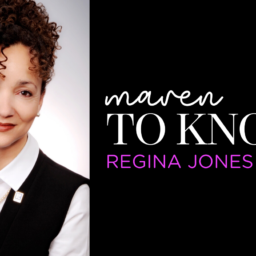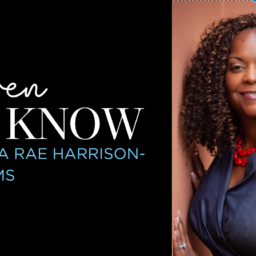
Created in Partnership with Colleen Hungerford Real Estate.
Let’s face it, buying a home can be stressful.
Between sorting through listings, scheduling viewings and rushing around to open houses, you’re bound to have dozens of burning questions. But before you go running to your realtor, Carmel-based realtor and Indy Maven’s partner Colleen Hungerford has a few tips for you to consider.
For starters, Hungerford said the number one thing potential homebuyers need to consider before they sit down to talk with a realtor is what they want and what they need in a home.
“Working with a realtor is working with a professional,” she said. “You’re working with somebody who is supposed to be your advocate, your representative and your teammate in this journey.”
Before you talk to a realtor
Hungerford said one of the first things she does is speak with her clients about what is going on in their lives — whether they intend to start or expand families, open a business or start a new job. These kinds of major life changes are crucial when searching for the home you intend to design your future.
“I like to have this five-step process that I use when working with clients — which I try to use just as a guideline for people — but that first part I called ‘designing the future,’” Hungerford said. “What are we looking at in the present? And then what does it look like for you in five years, two years, 10 years?”
Having a list of must-haves is essential to that first conversation with your realtor, although Hungerford said she doesn’t expect everyone to come in with a five-year plan, just an understanding of what they think they might want.
This is also a good time to discuss your ideal commute to work or if you plan on working from home and whether or not that would be a deal breaker for your dream home. Hungerford said knowing these kinds of things ahead of time — especially the non-negotiables — helps narrow down the search.
But because buying a home is more than just sorting through listings on Zillow and touring them right away, Hungerford is letting Mavens know some of the things your realtor wants you to know but just can’t tell you.
Things your realtor can’t tell you
 Beyond that initial conversation and first few home tours, Hungerford knows her clients will have about a dozen follow-up questions about neighborhoods, schools and properties that she simply cannot answer due to the Fair Housing Act. However, before you panic, consider Hungerford’s sage advice: “Google is your friend.”
Beyond that initial conversation and first few home tours, Hungerford knows her clients will have about a dozen follow-up questions about neighborhoods, schools and properties that she simply cannot answer due to the Fair Housing Act. However, before you panic, consider Hungerford’s sage advice: “Google is your friend.”
“It’s tricky, right?” Hungerford said. “You want to guide your client, you want to help support them in their goals, but also you have a responsibility.”
According to the U.S. Department of Housing and Urban Development, the Fair Housing Act “protects people from discrimination when they are renting or buying a home, getting a mortgage, seeking housing assistance, or engaging in other housing-related activities.”
Additionally, discrimination in real estate and lending, “including race-based redlining,” is a federal crime under the 1968 Fair Housing Act. Because of this, Hungerford said realtors cannot answer questions or legally discuss anything about race, sex, gender and gender identity, religion, color, national origin, ancestry, disability, familial status or veteran status with potential homebuyers.
“Is the neighborhood family-friendly?” or “What are racial demographics of the schools here?” are both examples of questions that violate the Fair Housing Act if your realtor were to answer them because it would be “steering.”
“I think, as realtors, we can very much be the gatekeepers of communities,” she said. “It’s really important that we are not doing that, that we are making an equitable landscape for everybody, and we’re not steering people towards or away from any particular area.”
“The act is over 50 years old now,” Hungerford added. “It has made some change and impact, and it has great intention and great purpose, but there’s still a lot of work to be done there.”
Do your own research
What Hungerford can tell you is to drive around the neighborhood of the home you’re interested in at different times. Go in the morning and observe. Are kids getting on the bus? Are people out walking their dogs? Maybe you want those things, but maybe you don’t.
READ MORE: Colleen Hungerford, A Realtor Who Does Her Research
Pay attention to what is in people’s front or back yards — Hungerford suggests doing this in a non-creepy way, of course. We’re Mavens here, after all. But look for toys, play structures, trampolines or basketball hoops. These are all indicators of families with children.
“What do you see like when you go out and make those observations for yourself?” she said. “Depending on your lifestyle choices, that will tell you whether that’s the right fit for you.”

Visiting the schools located in the area of homes you are touring is another way to get some questions answered. Hungerford can fit location criteria and find homes in neighborhoods close to schools, but beyond that, she recommends parents go visit private and public schools and speak with administrators and admissions counselors.
Hungerford said parents can also look at Niche.com, which is a website designed to help find schools from K-12, college and university, and grad schools. You can also visit several crime statistics websites for the area you are looking in.
“We just tell people to use Google as much as possible and talk to people in that area if you know them,” she said. “The other thing I like to tell people is if you could find a group on social media or Facebook, like … moms Facebook groups for parents Facebook groups or, you know, neighborhood-specific Facebook groups, go there and ask questions, you will get answers.”
Look out for red and green flags
When touring a home, Hungerford said to remember things such as looking up at the ceiling for spots that might indicate water damage. Also, peep into closets, feel out for uneven flooring and pay attention to the detail on tile and grout work in bathrooms and kitchens.
 “Does that mean that you’d run out of the house? No, but it’s definitely something you’re going to make a note of if you decide that it’s an awesome house that you want to make an offer on. You want to make sure the inspection is checked out,” she said.
“Does that mean that you’d run out of the house? No, but it’s definitely something you’re going to make a note of if you decide that it’s an awesome house that you want to make an offer on. You want to make sure the inspection is checked out,” she said.
It is also important to request copies of the HOA contract if your potential dream home is located in a neighborhood that has one. Your realtor will always give you the HOA documents to read through as part of the purchasing agreement.
But most importantly, keep in mind the list of three to five non-negotiable things you want in your new home. Hungerford said there is always a good chance those might change once you have found your dream listing, so keep an open mind and be flexible.
“You can remodel a home, you can knock down a home, you can rebuild a home, but you can never change that home’s location,” Hungerford said. “In my opinion, I would rather buy a house that needs work but is in a great location than a perfectly done home in a non-desirable location.”
Chloe McGowan is a dedicated plant parent, herbal tea lover, avid soy candle burner and a contributor for Indy Maven. Follow her on Twitter @chloe_mcgowanxx.
All of our content—including this article—is completely free. However, we’d love it if you would please consider supporting our journalism with an Indy Maven membership.













